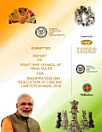Autonomy, Rationality, and Contemporary Bioethics
apr. 2020 · Oxford University Press
Rafbók
352
Síður
family_home
Gjaldgeng
info
reportEinkunnir og umsagnir eru ekki staðfestar Nánar
Um þessa rafbók
This is an open access title available under the terms of a CC BY-NC-ND 4.0 International licence. It is free to read at Oxford Scholarship Online and offered as a free PDF download from OUP and selected open access locations. Personal autonomy is often lauded as a key value in contemporary Western bioethics. Though the claim that there is an important relationship between autonomy and rationality is often treated as uncontroversial in this sphere, there is also considerable disagreement about how we should cash out the relationship. In particular, it is unclear whether a rationalist view of autonomy can be compatible with legal judgments that enshrine a patient's right to refuse medical treatment, regardless of whether the reasons underpinning the choice are known and rational, or indeed whether they even exist. Jonathan Pugh brings recent philosophical work on the nature of rationality to bear on the question of how we should understand personal autonomy in contemporary bioethics. In doing so, he develops a new framework for thinking about the concept of autonomy, one that is grounded in an understanding of the different roles that rational beliefs and rational desires have to play in it. Pugh's account allows for a deeper understanding of d the relationship between our freedom to act and our capacity to decide autonomously. His rationalist perspective is contrasted with other prominent accounts of autonomy in bioethics, and the revisionary implications it has for practical questions in biomedicine are also outlined.
Um höfundinn
Jonathan Pugh is a Postdoctoral Research Fellow in Applied Moral Philosophy at the University of Oxford and Manager of the Visiting Programme for the Oxford Uehiro Centre for Practical Ethics. His research interests lie primarily in issues concerning personal autonomy in practical ethics, particularly topics pertaining to informed consent. He has also written on the ethics of human embryonic stem cell research, criminal justice, human enhancement, gene-editing, and neuroethics.
Gefa þessari rafbók einkunn.
Segðu okkur hvað þér finnst.
Upplýsingar um lestur
Snjallsímar og spjaldtölvur
Settu upp forritið Google Play Books fyrir Android og iPad/iPhone. Það samstillist sjálfkrafa við reikninginn þinn og gerir þér kleift að lesa með eða án nettengingar hvar sem þú ert.
Fartölvur og tölvur
Hægt er að hlusta á hljóðbækur sem keyptar eru í Google Play í vafranum í tölvunni.
Lesbretti og önnur tæki
Til að lesa af lesbrettum eins og Kobo-lesbrettum þarftu að hlaða niður skrá og flytja hana yfir í tækið þitt. Fylgdu nákvæmum leiðbeiningum hjálparmiðstöðvar til að flytja skrár yfir í studd lesbretti.







